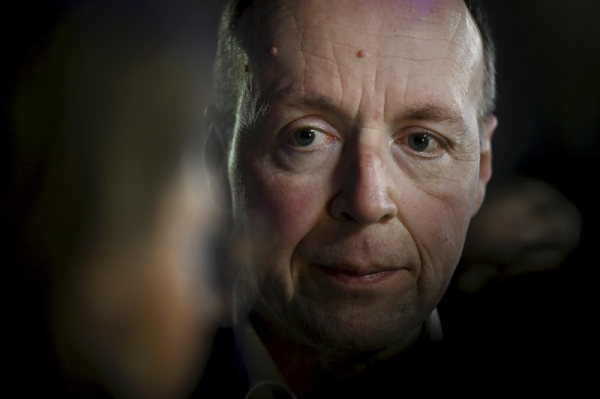Halla-aho says burnout and depression forced him from party leadership

The biography reveals that Halla-aho was exhausted and depressed when he left the party leadership. Photo: Emmi Korhonen / Lehtikuva
- Next Article Nordic-Baltic nations declare Putin cannot be trusted in joint statement
Jussi Halla-aho, now speaker of Finland’s parliament, has disclosed in a new biography that exhaustion and depression drove his decision to quit as leader of the Finns Party in 2021.
In Jussi Halla-aho – Elämäkerta by journalist Markku Heikkilä, he describes struggling with insomnia, personal turmoil and doubts about politics. He wrote that for years he slept only a few hours a night, often fearing he might collapse from fatigue.
Halla-aho links much of the stress to an extramarital relationship that led to the birth of a child in 2015. He said the situation created pressure and conflict, which he carried into his political work. “I do not excuse my infidelity, but I was hurt by the manipulation around the pregnancy,” he said in the book.
The strain deepened after the 2019 parliamentary election, when the Finns Party won almost as many seats as the Social Democrats. Despite the party’s success, Halla-aho said he was already close to burnout. He admitted questioning whether immigration problems, which he had built his political career on addressing, could be solved through democratic means.
“I began to wonder how much of my own life was worth sacrificing to try to save a country that clearly does not want to be saved,” he reflected.
The biography reveals that he considered resigning in 2019, but colleagues including Riikka Purra, then a senior party official, persuaded him to stay. Two years later he left the post, making way for Purra to become party chair.
Halla-aho writes that he saw himself as an obstacle to cooperation with the conservative National Coalition Party, led by Petteri Orpo, and believed the Finns Party might advance its agenda more effectively under someone else.
The book also contains blunt assessments of political figures. He describes former prime minister Sanna Marin as “an ageing teenager” unaccustomed to criticism, and former party leader Timo Soini as a populist whose focus on social issues weakened the party’s credibility. Halla-aho recalls losing trust in Soini in 2012 after a dispute over committee appointments following his conviction for incitement against an ethnic group.
He is equally unsparing toward Sampo Terho, his rival for party leadership in 2017, calling him a “weak character” who sought advancement through others rather than his own work. According to Halla-aho, Terho even asked him privately to step aside in exchange for a senior party role, a suggestion he rejected.
Despite his withdrawal from leadership, Halla-aho remains one of Finland’s most recognisable political figures. He continues to serve as speaker of parliament, a position he assumed in 2023.
HT
- Next Article Nordic-Baltic nations declare Putin cannot be trusted in joint statement
Source: www.helsinkitimes.fi
